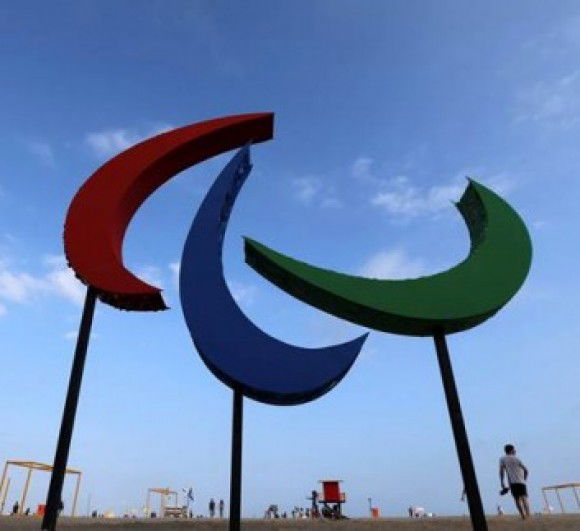Sports
Rio looking like host of Paralympic Games, symbol and all

Rio de Janeiro, Sep 3: Twelve days after the closure of the Olympic Games, the Brazilian city of Rio de Janeiro now seems every bit like the host of the Paralympic Games, with the installations already adapted to the special needs of para-athletes and even the sculpted symbol of the movement erected on the sands of Copacabana.
At a time when the first delegation begin to occupy the Paralympic Village for the Games, Copacabana, Brazil's most iconic beach has witnessed a large sculpture of the three "Agitos", as the principal symbol of the Paralympic Movement, reports Efe.
This sculpture is four metres (13 feet) tall and three metres (10 feet) wide and made of recycled plastic which, besides the three boomerang shapes coloured red, blue and green that together symbolise the Paralympic Games, has a special texture and odour so it can be appreciated by people with sight deficiencies.
The Agitos sculpture was erected at the same place on Copacabana Beach where a sculpture of the three Olympic rings previously stood.
"As soon as I got to Rio de Janeiro last Wednesday night, I saw the city had already acquired the right look and energy for the Paralympic Games," said the president of the International Paralympic Committee (IPC), Phillip Craven, at the sculpture's inauguration ceremony.
Further proof that Rio de Janeiro seemed like the host of the Paralympics, Craven said, is the overwhelming demand over the past few days for tickets to the competitions.
Just two weeks ago the organisers complained they had sold only 12 per cent of the tickets and that they needed public aid to finance some of their expenses, but this week's ticket sales soared to 1.5 million of the 2.5 million available.
The city has also carried out a number transitions from the Olympics to the Paralympics like one of the gymnasiums for tennis in Olympic Park was remodelled because starting next week it will be used for soccer 5 matches, the version for sight-deficient players and for which tickets are already sold out.
The distribution of the former Olympic Village was also renovated because it will no longer have to provide shelter for 11,500 Olympic athletes, only for 4,300 para-athletes with special needs.
The 32 installations used for competitions in 42 Olympic events were reduced to 21 to accommodate the 23 Paralympic sports.

6 hours ago
Susie Wiles rejects Vanity Fair profile, defends Trump White House

9 hours ago
PM Modi’s Jordan visit opens new chapter in bilateral business ties: Industry leaders

14 hours ago
Local body poll verdict signals voter pushback against CM Vijayan’s rule in Kerala

14 hours ago
Vellappally's ride in CM Vijayan's car sparks political flurry in Kerala

14 hours ago
Amitabh Bachchan’s granddaughter Navya pays tribute to war hero Arun Khetarpal on Vijay Diwas

14 hours ago
Abhishek Bachchan calls Agastya Nanda’s dedication to portraying Arun Khetarpal ‘commendable’

14 hours ago
‘Aawaz kaha tak jaani chahiye? Lahore tak!’ sets tone as ‘Border 2’ makers unveil teaser

14 hours ago
When Kichcha Sudeep interchanged seats with actress Roshini Prakash at the pre-release event of 'Mark'!

14 hours ago
Ashutosh Rana expresses pride as wife Renuka Shahane bags two recent awards

14 hours ago
President Murmu inaugurates photo gallery dedicated to 21 Param Vir Chakra awardees

14 hours ago
Oppn storms LS over MGNREGA name change, Priyanka Gandhi flags threat to employment guarantee

14 hours ago
PM Modi invites Jordanian firms to partner India, create robust economic corridor

14 hours ago
'Don't understand the obsession with changing the name': Priyanka Gandhi on renaming of MGNREGA
























